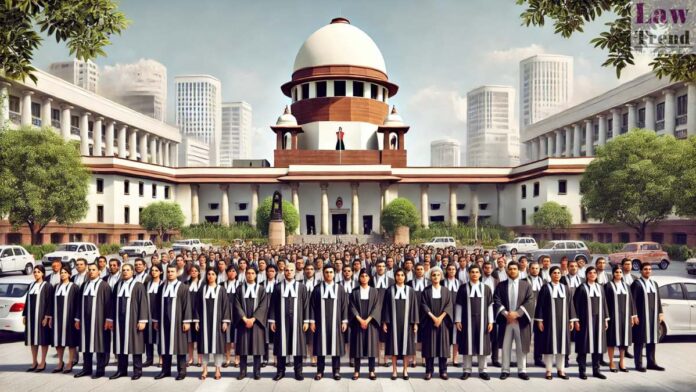The Supreme Court has sought a response from the Uttar Pradesh Bar Council on a petition challenging its demand of ₹14,000 from newly enrolled advocates under the head “certificate of practice,” which the court said appears to contradict its own earlier ruling in Gaurav Kumar v. Union of India (2024).
A bench of Justice J.B. Pardiwala and Justice K.V. Viswanathan issued the notice after noting that a July 20, 2025 communication from the State Bar Council prima facie conflicted with binding directions in the Gaurav Kumar judgment. In that case, decided on July 30, 2024, the apex court had made it clear that Bar Councils cannot collect enrolment fees exceeding the statutory cap fixed under Section 24 of the Advocates Act, 1961 — ₹750 for general category candidates and ₹125 for SC/ST candidates. The ruling also barred State Bar Councils and the Bar Council of India from levying any additional amounts, whether termed “optional” or “administrative” fees.
Petitioner’s Allegations
The plea, filed by advocate Deepak Yadav, alleges that before the Gaurav Kumar ruling, the UP Bar Council charged ₹16,500 for enrolment. Instead of reducing the amount to the statutory limit after the judgment, the council allegedly began collecting ₹14,000 under the “certificate of practice” label. The petitioner relied on the July 20 communication as evidence of this continued overcharging.
Court’s Remarks
Observing the apparent inconsistency, the bench said, “Prima facie, the communication issued by the Bar Council of Uttar Pradesh is in direct conflict with the directions issued in Gaurav Kumar.” The judges also questioned why such petitions were resurfacing despite the court’s clear stance in 2024.
Background of Enforcement
Earlier this year, another bench led by Justice Pardiwala and Justice R. Mahadevan had reiterated that neither the Bar Council of India nor any State Bar Council could demand sums over and above the statutory fee at the enrolment stage. The present case highlights ongoing concerns about non-compliance with these directions.
The matter will now proceed with the UP Bar Council required to file its response to the petition.




